We already know, thanks to this project, that people will buy a near-worthless doodad for much more than its free-market value after it’s given a completely invented narrative. But how important is the identity of the narrative-maker? In other words: Would Significant Objects still sell if we didn’t tell you who our authors are?
Here’s why I ask.
E pointed out to me an interesting post by gallerist and art blogger Edward Winkleman, as it mentions Significant Objects. I’ll get to that part in a second, but first the meat of his post. It’s a follow-up to an earlier Winkleman item in which he floated the idea of “a group exhibition of strong (but not undeniably recognizable) work by good artists, but with absolutely no names attached. The Anonymous Show.”
I’m talking no signatures anywhere on the work, no names on the checklist, no way for the collector to learn who made the work. The artist would of course receive payment for any sold work, but that’s all. No press, a contract stipulating they can’t add the show to their resume, nothing but the Art… The central question of the experiment being, of course: Is it about the art (for both the artist and the collector) or is it about name recognition, branding, prestige, etc. etc.?
Check his post for the feedback; it’s an interesting discussion. But actually, do that later, stick with me for now. In the follow-up post I read yesterday, Winkleman considers a complication: “the value of narrative.” Turns out that David Carson hipped him to Significant Objects, as well as this Q&A about the project conducted by Adweek’s Rebecca Cullers. Winkleman writes:
What interested me in this story, in relationship to The Anonymous Show idea, is finding some way to acknowledge the part narrative clearly plays in imparting value to art works. (And I believe it does : Had the Mona Lisa never been stolen, would it be as famous/valuable, or just another among Da Vinci’s works?)
Therefore, to address both the original goal, the quality issue, and the narrative issue, I began to wonder if the show might not be improved upon by noting that anyone who purchased a work from the show would be told who its author was (complete with bio and full narrative) in two years time. At that time, if the collector wished, the artwork would be bought back by the gallery for the same price. No questions asked.
All very interesting!
And of course like everything else it made me think about … Significant Objects! More than one member of this project’s virtual peanut gallery has bleated the allegation that our more famous contributors have a built-in advantage when it comes to auction time; in other words, these skeptics suggest, the identity of the author is more important than the story s/he creates. It’s certainly true that S.O. has many esteemed contributors — toppers of sales charts, recipients of coveted & prestigious awards, etc., etc. Still and all, our data shows that it simply isn’t so that author fame dictates sales prices; we’ve determined that it’s a secondary factor at best. While all our contributors have of course been gifted storytellers, many have never published a book, let alone a best-seller. Bottom line: the data simply do not show any consistent correlation between author fame and final sales price.
But I’m digressing. The point is, we’ve speculated before that in addition to the narratives created by our amazing contributors, our buyers are also attracted to the narrative of Significant Objects itself. My guess about Winkleman’s theoretical Anonymous Show is that the power of narrative would work in its favor in a similar way: People would buy the work simply to tell other people that they bought something at the Anonymous Show. (This would obviously be even more true if Winkleman (or whoever) did a good job on the “name recognition, branding, prestige, etc. etc.” of the Anonymous Show itself, but that’s another … story.)
I’m not sure if Picasso’s famous line about good artists borrowing and great ones stealing applies to curators or not, but I’m tempted to borrow or steal Winkleman’s notion and organize an Anonymous Week here on Significant Objects. We did pretty well selling a Mystery Object, so perhaps Mystery Authors would be another logical wrinkle in our ongoing experimentation. We could reveal the names of the authors later, I suppose — but I don’t like the idea of offering anybody their money back!
What do you think, readers? Would we get bids on object/stories if we declined to disclose the name of the Significance-maker?
Two trivial notes to round this off. 1) I once interviewed Winkleman for a Consumed that dealt in part with the gallery world. He’s a keen and lucid observer that scene, and if it interests you at all I recommend his blog. 2) I’ve never had occasion to speak with David Carson, but I did have this memorable semi-encounter with him a while back.

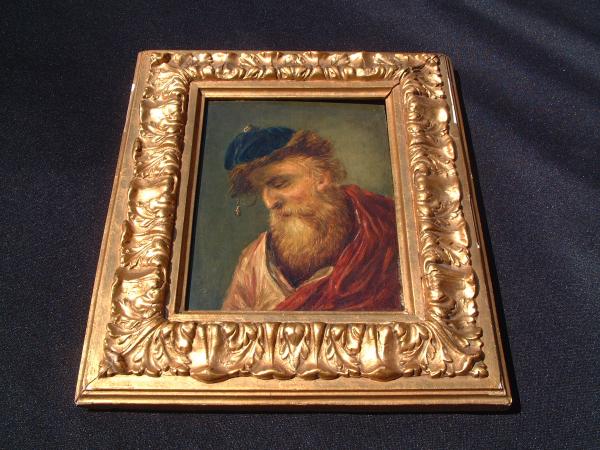
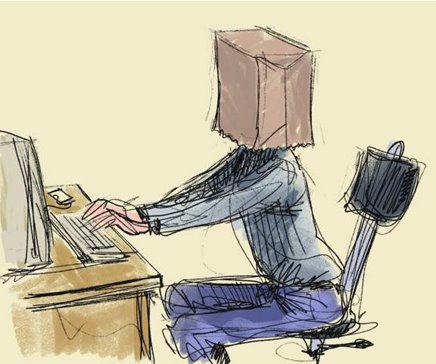
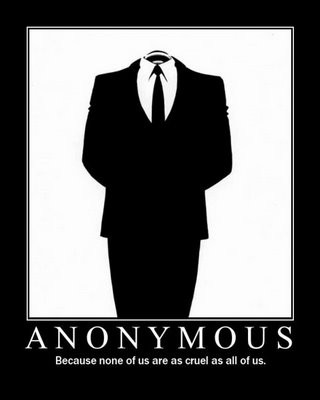
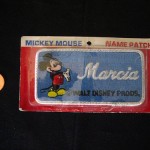
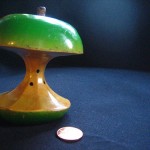
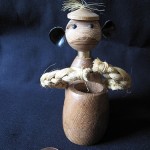
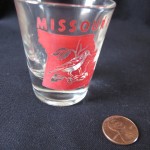
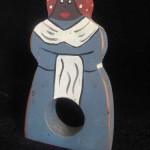
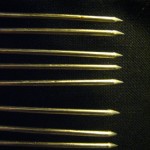
An interesting discussion and an even more amazing idea: Yes, please, go right ahead with an Anonymous Week. I’d be in, and I bet the rest of the gang would be as well.
Pingback: Elsewhere: Anonymous Authors, MTKG Tumblr
The other side of this question is, of course: Could you convince authors to do anonymous stories? I’m guessing yes. Forget the money-back thing, no one would want that. And maybe disclose names at the end of a special series or fundraiser. Or not.